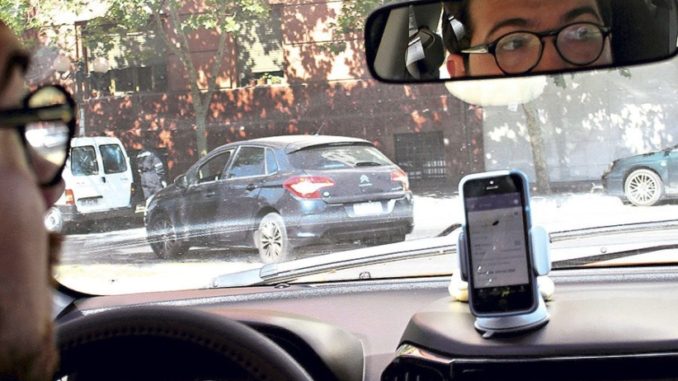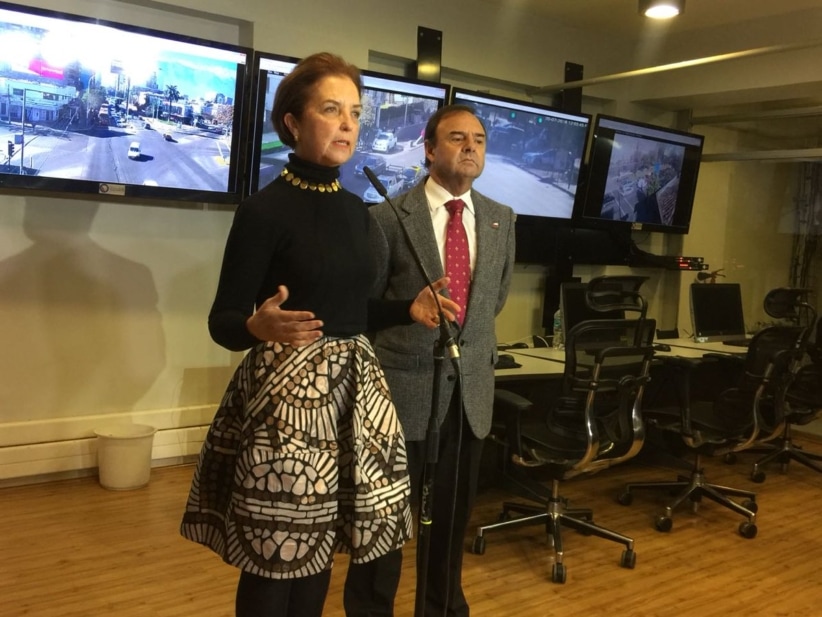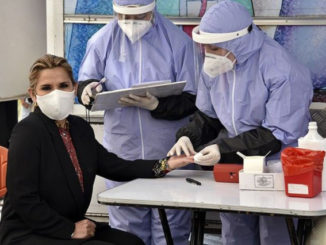
SANTIAGO – Chile’s transport and telecommunications ministry (MTT) has sent a bill to congress to regulate transport apps with the purpose of granting greater security to users, ensuring the quality of service and generating certainty in a regulated industry.
“This new bill establishes a series of demands on transport applications with the aim of generating conditions of equality and fair competition, for the benefit of all people who use these types of services,” said Minister of Transport and Telecommunications Gloria Hutt, who together with the Subsecretary of Transportation, José Luis Domínguez, formalized the entry of the new bill on Friday.
“As a government we are taking responsibility for a reality, understanding that the correct use of technologies and regulation that ensures the professionalization of the sector, implies improvements for all parties involved, and especially for citizens. We trust that the parliamentary discussion will be carried out under the same principles and that in the short term we will have a new legal framework,” she added.

The project creates the Transport Application Companies (EAT) and obliges them to be established as paid passenger transport companies in Chile. This implies that they must start activities in the country and, in addition, take charge of the transport service they deliver, for example in case of accidents or quality of service. That is, they cannot be excused that they only provide technological services.
Likewise, they must register in an application register that will be carried by the Ministry of Transport and Telecommunications (MTT). Although it is a register of the companies, these in turn must provide the MTT with updated information on drivers and assigned vehicles.
El proyecto que regula a las plataformas tecnológicas que prestan servicios de transporte está centrada en los usuarios y en su seguridad. Porque no da lo mismo quién nos moviliza por nuestras ciudades, presentamos la #LeyDePlataformas ? pic.twitter.com/jaeAPRmy3A
— Ministerio de Transportes y Telecomunicaciones (@MTTChile) July 21, 2018
On the other hand, in order to establish safety conditions for users, all drivers will be required to have A1 professional license and those who have a criminal record for certain crimes of social connotation such as sexual, traffic, etc., may not be engaged in the activity.
As a requirement for operation, they must inform the user of the travel fares in advance, the route, the identification of the driver and the vehicle, among others. They are also required to offer a channel of permanent contact information and complaints, and contract liability insurance for passengers.
In terms of vehicle standards, seniority and technical and safety requirements, these will be delivered to a regulation, to be developed by the portfolio. Meanwhile, there is already a definition that everyone will have to wear a visible badge.
Additionally, the application companies must provide the MTT with the important input of their travel data, such as kilometers traveled, timetables and areas of operation, in real time or in a consolidated manner. This will allow the Executive to generate modifications or new public policies or those that are necessary for the sector.
The MTT reserves the right to establish operating conditions for application companies, in order to regulate measures for access, quality and coverage of transport services, and to counteract possible impacts on congestion, as well as to grant Special conditions for zero emission vehicles.
The project also includes sanctions for passengers who collaborate in obstructing the inspection. As for the shared trips, they can be made only in collective taxis.
Regarding taxis, the project establishes that it will encourage the use of technologies to attract passengers and establish collection mechanisms different from the current taximeter.



